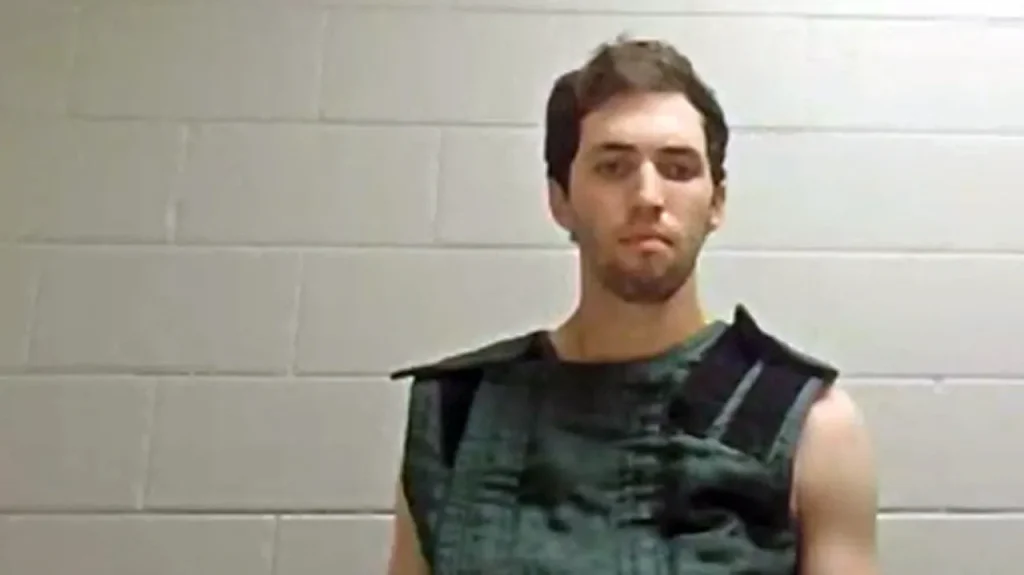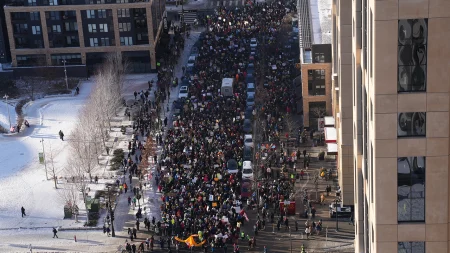Tyler Robinson Requests Civilian Clothes for Court in Charlie Kirk Assassination Case
One month after the assassination of Turning Point USA founder Charlie Kirk at Utah Valley University, the accused shooter, 22-year-old Tyler Robinson, has filed a motion requesting permission to appear in court wearing civilian clothes rather than a jail jumpsuit, and without shackles or handcuffs. In a comprehensive 21-page filing, Robinson’s legal team argued that these concessions would help preserve his constitutional right to a fair trial amid extraordinary public attention. The defense cited Bryan Kohberger’s case (the accused Idaho student murderer) as precedent and requested a private hearing specifically on the matter of physical restraints.
The September 10th shooting of Charlie Kirk, a 31-year-old married father of two, became instantly notorious as video of the assassination spread across the internet within minutes of the event. Robinson’s attorneys emphasized this intense publicity in their motion to Judge Tony Graf, arguing that “with each development in the case generating thousands of articles and comments online,” the likelihood of potential jurors forming prejudicial opinions based on seeing Robinson in prison attire would “only increase.” They specifically warned that “the repeated and ubiquitous display” of images showing their client in jail clothing “will inevitably lead to prospective juror perception that he is guilty and deserving of death.”
The defense team presented Robinson as having conducted himself appropriately while in custody and highlighted his lack of prior criminal record. These factors, they suggested, should weigh in favor of granting their request, characterizing the accommodation of civilian clothing as “a minor inconvenience compared to the already present concerns with securing a fair trial before an impartial jury.” The motion represents a significant early strategic move by Robinson’s attorneys as they prepare for what will undoubtedly be a high-profile murder trial under intense public scrutiny.
Law enforcement moved swiftly in this case, arresting Robinson within 33 hours of the shooting. He now faces serious charges including aggravated murder, obstruction, and witness tampering – charges that could potentially result in the death penalty if he’s convicted. The prosecution’s case appears to include substantial physical evidence, with police claiming they found Robinson’s DNA on the murder weapon that was hidden near the crime scene. Additionally, investigators allege that Robinson sent messages to family members, friends, and his transgender romantic partner acknowledging responsibility for the killing. This partner is reportedly cooperating with detectives.
The motion for civilian attire highlights the extraordinary challenges of conducting a fair trial in a case that has captured national attention and sparked intense emotional responses. While standard practice in many jurisdictions allows defendants to wear civilian clothes during jury trials to avoid prejudicial appearances, the extensive pre-trial publicity in this case amplifies concerns about potential juror bias. Robinson’s legal team appears to be laying groundwork for protecting their client’s rights while preparing for what will likely be a complex legal battle addressing both the evidence and the highly charged political context surrounding the case.
Robinson has not yet entered a plea to the charges against him, and his next court appearance is scheduled for October 30th. As the legal proceedings unfold, both prosecution and defense will need to navigate not only the factual elements of the case but also the intense public interest in an assassination that targeted a prominent conservative political figure. The judge’s ruling on this initial motion may provide early insight into how the court intends to balance the defendant’s constitutional rights with the practical realities of managing a case under such extraordinary public scrutiny.








